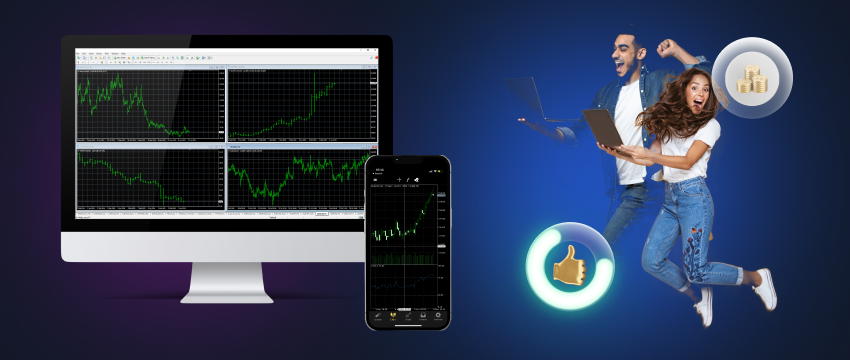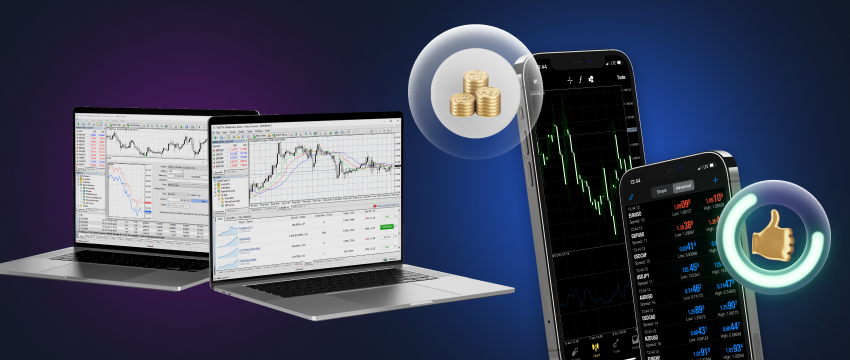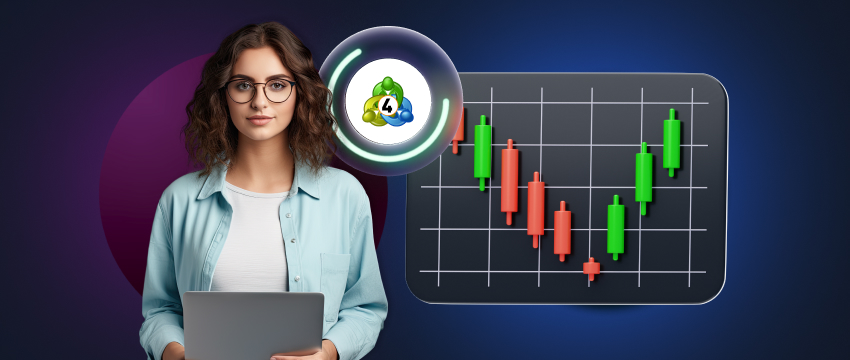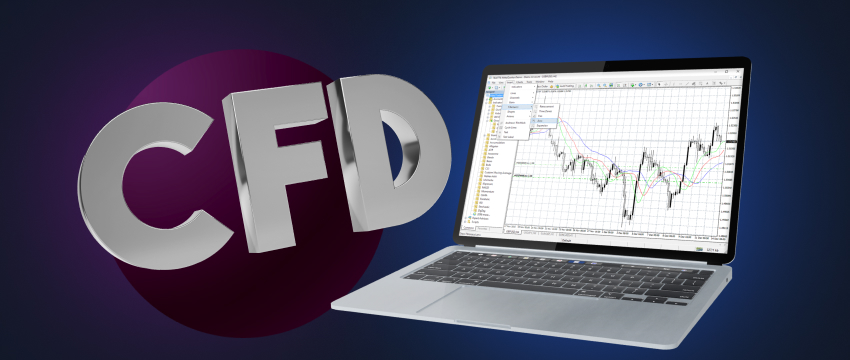Becoming a forex trader has never been easier. Access to global currency markets has become more streamlined. Brokerage platforms catering to the demands of diverse trading styles have become more prevalent. But trading on what is undoubtedly one of the largest and most liquid financial markets in the world requires a few important steps to succeed. Let’s take a look at what a forex trader at the beginning of their trading journey should do to navigate the complexities of currency trading and mitigate the risk involved.

Define your trading goals
As with any new activity, having clear objectives is key. The same applies to successful online forex trading. Set your goals to have something to work towards. Do this by identifying what it is you want to achieve. Establish the types of trades you want to open, and your level of risk tolerance. Then build a trading strategy that will get you to where you want to be.
Remember, how your trades perform will change from month to month, impacting the profit or loss you will incur. A proper plan will help keep you better focused on dealing with these fluctuations, and possibly experience more success.
Learn what you can
The forex market sees a daily trading volume exceeding $6 trillion. While the potential for making a large profit is big, having a proper understanding of the market is key before executing real trades.
There are many ways to acquire the information you need to become a skilled forex trader. Proper research is instrumental in becoming familiar with forex trading terms. Make use of educational tools like videos, articles, guides, or e-books. Participate in webinars or trading classes. Learn what you can about the different types of trading styles to find one best suited to your demeanour.
Read more on forex trading strategies and draw from them any useful tips that will help you design a strategy of your own.

Building a forex trading strategy
Building a forex trading strategy will help you manage your trades better to reduce large losses and mitigate risk. A strategy offers a structure that can be adjusted based on how your trades are performing and whether your goals look to be met. It takes into consideration factors like risk tolerance, market environments, size of trades, the potential for profit or loss, and many more.
There are several types of strategies forex traders can implement. Swing traders for instance seek to profit from short-term price swings. They make trading decisions using technical and fundamental analysis, as and when the need arises. Day traders are typically well-versed in technical analysis. They make use of varied techniques to execute several short-term trades during a trading day, often closing trades before the end of the trading day, to avoid overnight risk.
Forex scalping is another day-trading strategy. It can be time intensive in that the forex trader is typically placing multiple or recurring short-term (small) trades throughout the day. Finally, unlike day traders or swing traders, position traders hold onto trades for a longer period. They identify trends and the types of investments that will benefit therefrom.
Risicobeheer
Managing risk is key to becoming a successful forex trader, particularly when the stakes are so high as far as losing large amounts of money is concerned. How you manage risk is largely determined by character, resilience, knowledge, and skills. This is why having a good risk management strategy in place is important. So, what are some of the ways forex traders can protect themselves from risk?
Try to measure possible losses
Attempt to quantify potential loss before taking (or not taking) steps to open or close a trade. Identifying the risks as best you can, relative to what you want to achieve (goals) or the level of risk you’re prepared to incur.
Gain proper insights into leverage
Trading forex comes with high leverage, so the possibility of losing large sums of money is also magnified. Identify the tools you need to be equipped with to minimise the risk. Gain accurate insights into what leverage entails and learn how to properly allocate your funds. Use stop-loss orders when necessary to limit your losses if the market moves against you. Consider using a take-profit order before a trade moves in an unfavourable direction.
Learn what you can about technical and fundamental analysis
Gain a good understanding of technical and fundamental analysis to be able to properly interpret market data. Remember, the forex market is very volatile and largely impacted by financial and political events worldwide. If you can properly analyse the data generated from market fluctuations instigated by these types of events, your ability to ascertain appropriate risk is minimised.
Be patient
Don’t be impulsive. Caution plays a valuable role in making profitable forex trading decisions. It will also help you exercise restraint until the right time and price occur to open or close a trade.
Picking the right CFD forex broker
There are many criteria to consider before choosing a CFD forex broker. For one, the broker should come with a strong reputation, renowned not only for their forex trading experience but also for top-tier customer support.
They should also offer a cutting-edge trading platform with a range of trading tools to help you on your trading journey. This includes advanced charting features, customisations based on your trading style and trading needs, market analysis, as well as extensive educational resources to keep your knowledge up to date. The broker should also deliver current news and insights into global markets, investor sentiment, economic and geopolitical instabilities or events, natural disasters, and more.
What are CFDs?
CFDs are contracts for differences entered into between two parties (e.g., broker and trader) and offer forex traders a way to trade forex currency pairs. CFD forex brokers act as an intermediary between traders and the market. Trades are placed on currency pairs by predicting the price movement of the underlying asset.

Start off with a demo trading account
Once you’ve picked a CFD forex trading broker that meets your requirements, open a demo account. Simulating a real trading environment, a demo account will give you the ability to place real-time trades with virtual money and see possible outcomes. It will also give you an idea of what it means to not only make big gains, but also the types of losses you could experience if using real money. So, make use of a demo account until you’ve gained the confidence and the skills to start opening and closing actual trades.
In essence, a demo account demonstrates what potential losses and gains would look like if you were trading with real capital. In fact, even after gaining live trading experience, a forex trader may continue practising with a demo account, especially for testing new strategies.
In conclusion
Before diving into forex trading, take baby steps. Acquire the skills you need by educating yourself on what it entails. Be conservative until you’ve had the time to learn the impact of market and price fluctuations on your trades. Gain experience before investing large amounts of capital. Design a strategy and stick to it. Adjust only as and when required, to achieve your objectives.
Disclaimer: This material is for general informational & educational purposes only and should not be considered investment advice or an investment recommendation. T4Trade is not responsible for any data provided by third parties referenced or hyperlinked, in this communication.




